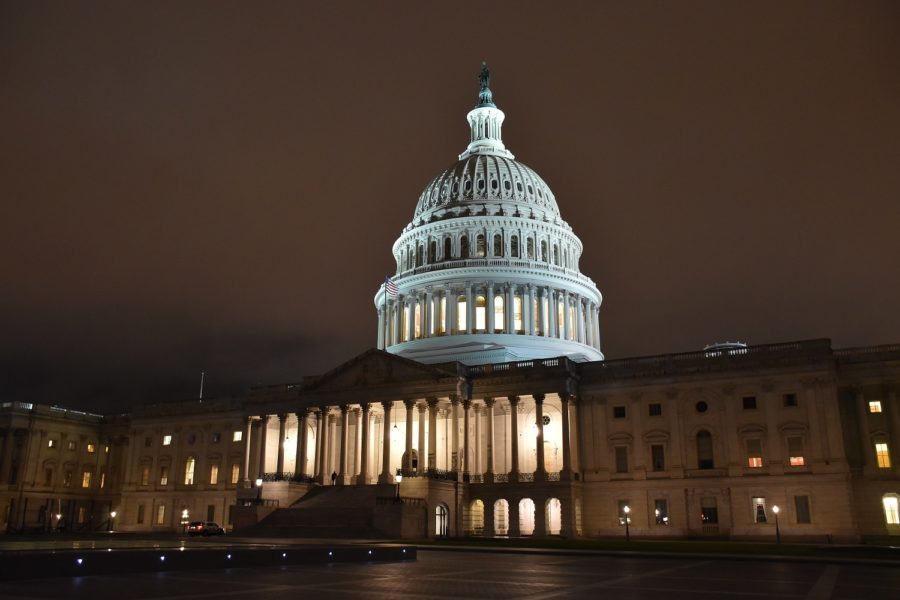The Senate confirmed over 400 senior military promotions Dec. 5, after Sen. Tommy Tuberville mostly lifted his monthslong hold on military nominations.
“I’m not going to hold the promotions of these people any longer,” Tuberville (R-Ala.) told reporters on Capitol Hill. “We fought hard.”
Specifically, Tuberville lifted his hold on all nominations below four-star generals and admirals. Out of 455 pending general and flag officer nominations, affecting 451 people, the Senate confirmed 425 on Dec. 5. Of the 30 nominations still pending, at least 11 are for four-star officers.
Tuberville had come under increasing pressure from members of his own party to lift the hold. He initially placed it in March to protest the Pentagon’s reproductive health policies, which provide funds to service members to travel out of state to seek services, including abortions.
Senators regularly place legislative holds on individual nominations to raise certain issues. Tuberville’s hold on all general and flag officers, however, was unprecedented in scope and length.
“Today, hundreds—hundreds—of military families across the country can breathe a sigh of relief,” Senate Majority Leader Chuck Schumer (D-N.Y.) said. “The Senate has now unanimously confirmed hundreds of military confirmations that were held up for 10 months by a single person, the senator from Alabama. Thank God, these military officers will now get the military promotions that they so rightfully earned.”
The Pentagon has said the policy has harmed military readiness amid an increasingly precarious international security situation with a war between Israel and Hamas as Russia’s invasion of Ukraine approaches its second anniversary—all while U.S. troops in the Middle East have come under attack from Iranian-aligned groups and tensions with China have risen.
“Certainly, we’re encouraged by the news,” Pentagon Press Secretary Brig. Gen. Patrick S. Ryder said. It is unclear exactly when the Senate will confirm more nominees.
“I thank the Senate for quickly confirming these appointments and urge them to confirm the remaining appointees swiftly,” President Joe Biden said in a statement.
The newly freed one-star, two-star, and three-star nominations include 111 Department of the Air Force nominations affecting 109 people: four in the Air National Guard, 26 in the Air Force Reserve, 70 in the Air Force, and nine in the Space Force, according to a defense official. It was not immediately clear if all of those officers were confirmed en masse.
However, it will take time for all the newly confirmed generals to reach their new jobs.
“It’s not just flipping a switch, and suddenly everyone moves into these new positions,” Ryder said. “You have to consider things like when people can move, where the people that are moving out of the positions are going. So all that has to be carefully orchestrated and done in a way that enables us to continue to conduct the operations without having a significant impact not only on the mission but also on the individual family members.”
The Air Force and Space Force have a disproportionate number of the 11 pending four-star positions, which can still be voted on individually on the Senate floor—Seven USAF and USSF generals nominated for four-star positions remain under blockade and are unable to take up their new jobs, U.S. defense officials said.
The holds include new vice chiefs for both services: Lt. Gen. James C. Slife for the Air Force and Lt. Gen. Michael A. Guetlein for the Space Force.
Three others are to lead combatant commands:
- Lt. Gen. Gregory M. Guillot to lead U.S. Northern Command and NORAD
- Lt. Gen. Timothy D. Haugh to lead U.S. Cyber Command
- Lt. Gen. Stephen N. Whiting to lead U.S. Space Command
And two are to lead Air Force major commands:
- Lt. Gen. Kevin B. Schneider to be commander of Pacific Air Forces
- Gen. Kenneth S. Wilsbach, the current leader of PACAF and a four-star general, to be head of Air Combat Command
“These holds have already dragged on needlessly for months,” Secretary of Defense Lloyd J. Austin III said in a statement.
The four-star positions are still likely to be confirmed via individual votes.
“We have a mission to do,” Ryder said. “We require senior leaders in key positions to help lead and conduct the operations of the Department of Defense.”
